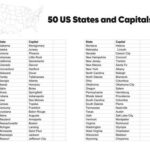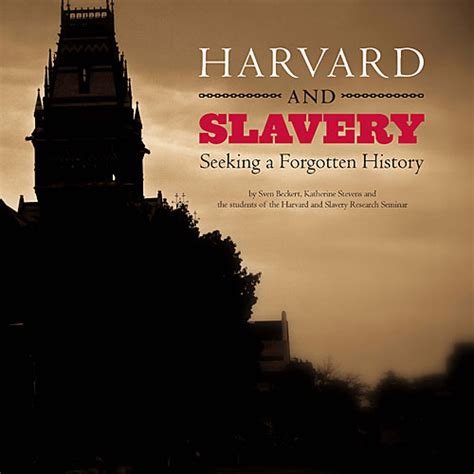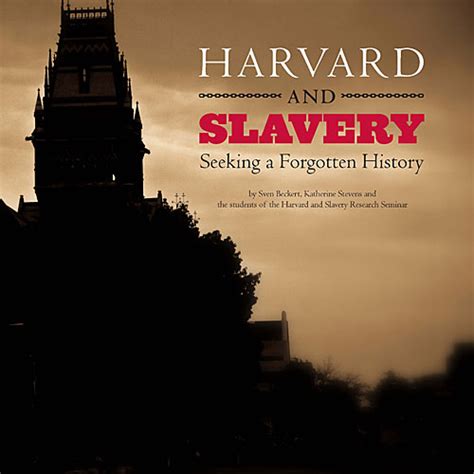
A federal judge has ruled that the National Institutes of Health (NIH) illegally terminated a grant supporting research at EcoHealth Alliance, citing “unprecedented” bias in the agency’s decision-making process. The ruling reinstates the grant, which was suspended in 2020 following scrutiny of EcoHealth Alliance’s work with the Wuhan Institute of Virology in China.
A federal judge has determined that the National Institutes of Health (NIH) acted unlawfully when it abruptly canceled a grant to EcoHealth Alliance, a research organization focusing on preventing pandemics, characterizing the agency’s actions as demonstrating “unprecedented” bias. The decision mandates the reinstatement of the grant, which was suspended in 2020 amid heightened scrutiny of EcoHealth Alliance’s collaborative research initiatives with the Wuhan Institute of Virology in China. Judge Paul A. Engelmayer of the Southern District of New York issued the ruling on Tuesday, stating the NIH’s decision to terminate the grant was “arbitrary and capricious” and violated the Administrative Procedure Act (APA). The APA governs the way in which administrative agencies of the federal government of the United States may propose and establish regulations.
The now-reinstated grant, initially awarded to study bat coronaviruses and assess the risk of viral spillover to humans, became the subject of intense political controversy during the COVID-19 pandemic. Critics, particularly those advancing the lab leak theory, alleged that EcoHealth Alliance’s work at the Wuhan Institute of Virology might have played a role in the pandemic’s origin. EcoHealth Alliance, led by President Peter Daszak, has vehemently denied these allegations and maintained that its research was aimed at preventing future pandemics.
Judge Engelmayer’s ruling highlighted several procedural flaws in the NIH’s decision-making process. He noted that the agency failed to provide EcoHealth Alliance with adequate notice and opportunity to respond to concerns before suspending and ultimately terminating the grant. The judge also found evidence of bias on the part of NIH officials involved in the decision, citing their public statements and internal communications expressing skepticism and distrust of EcoHealth Alliance.
“The Court concludes that the agency acted arbitrarily and capriciously in violation of the APA,” Judge Engelmayer wrote in his opinion. “The record reveals that NIH failed to engage with EcoHealth in a meaningful way before terminating the grant and that the agency’s decision was tainted by bias.”
The ruling represents a significant victory for EcoHealth Alliance and a rebuke to the NIH’s handling of the grant termination. It also raises broader questions about the influence of political considerations on scientific funding decisions and the importance of due process in government actions.
Background of the Grant and Controversy
The grant in question, titled “Understanding the Risk of Bat Coronavirus Emergence,” was awarded to EcoHealth Alliance in 2014 by the National Institute of Allergy and Infectious Diseases (NIAID), a division of the NIH. The project aimed to study bat coronaviruses in China and Southeast Asia, assess the potential for these viruses to spill over into human populations, and develop strategies for preventing future outbreaks.
As part of the grant, EcoHealth Alliance subcontracted with the Wuhan Institute of Virology, a research facility in China that studies coronaviruses and other pathogens. The collaboration involved collecting bat samples, analyzing viral sequences, and conducting laboratory experiments to understand how these viruses infect cells.
Following the outbreak of COVID-19 in late 2019, the grant became a focal point of controversy. Some scientists and politicians suggested that the virus might have originated from a laboratory accident at the Wuhan Institute of Virology, and they pointed to EcoHealth Alliance’s work at the lab as evidence.
EcoHealth Alliance has consistently denied these allegations, stating that its research was conducted safely and that there is no evidence to support the lab leak theory. The organization has also emphasized that the viruses it studied at the Wuhan Institute of Virology were not the same as SARS-CoV-2, the virus that causes COVID-19.
Despite these denials, the controversy surrounding the grant led to increased scrutiny from the NIH and other government agencies. In April 2020, the NIH suspended the grant, citing concerns about EcoHealth Alliance’s oversight of the Wuhan Institute of Virology and its compliance with grant terms. In July 2020, the NIH terminated the grant altogether.
EcoHealth Alliance’s Lawsuit
EcoHealth Alliance challenged the NIH’s decision to terminate the grant by filing a lawsuit in the Southern District of New York in July 2020. The lawsuit alleged that the NIH had acted arbitrarily and capriciously in violation of the APA, and that the agency had failed to provide EcoHealth Alliance with due process.
EcoHealth Alliance argued that the NIH’s decision was based on political pressure and unsubstantiated allegations, rather than on scientific evidence or legitimate concerns about the grant’s management. The organization also claimed that the NIH had failed to give it a fair opportunity to respond to the agency’s concerns before terminating the grant.
The lawsuit sought to have the grant reinstated and to prevent the NIH from taking further action against EcoHealth Alliance.
Judge Engelmayer’s Ruling
In his ruling, Judge Engelmayer sided with EcoHealth Alliance, finding that the NIH’s decision to terminate the grant was indeed arbitrary and capricious.
The judge criticized the NIH for failing to engage with EcoHealth Alliance in a meaningful way before terminating the grant. He noted that the agency had not given EcoHealth Alliance a reasonable opportunity to address its concerns or to provide additional information about its work at the Wuhan Institute of Virology.
Judge Engelmayer also found evidence of bias on the part of NIH officials involved in the decision. He cited public statements and internal communications in which these officials expressed skepticism and distrust of EcoHealth Alliance.
“The record reveals that NIH harbored animus against EcoHealth and its president, Dr. Peter Daszak,” Judge Engelmayer wrote in his opinion. “This animus infected the agency’s decision-making process.”
The judge concluded that the NIH’s decision to terminate the grant was not based on a fair and impartial assessment of the facts, but rather on political considerations and personal biases.
Implications of the Ruling
Judge Engelmayer’s ruling has several important implications.
First, it represents a significant victory for EcoHealth Alliance and a vindication of its research. The ruling clears the way for the grant to be reinstated and for EcoHealth Alliance to continue its work on bat coronaviruses and pandemic prevention.
Second, the ruling is a rebuke to the NIH’s handling of the grant termination. It sends a message that government agencies cannot act arbitrarily or capriciously in making funding decisions, and that they must provide grantees with due process.
Third, the ruling raises broader questions about the influence of political considerations on scientific funding decisions. It highlights the importance of protecting scientific research from political interference and ensuring that funding decisions are based on scientific merit, not on political agendas.
Fourth, the ruling may have implications for other research grants that have been suspended or terminated due to political controversy. It could encourage other researchers to challenge these decisions in court and to demand greater transparency and due process.
Finally, the ruling underscores the importance of scientific collaboration and international cooperation in addressing global health challenges. EcoHealth Alliance’s work with the Wuhan Institute of Virology was aimed at understanding and preventing future pandemics, and the ruling affirms the value of this type of research.
NIH’s Response
The NIH has not yet issued a formal statement in response to Judge Engelmayer’s ruling. It is unclear whether the agency will appeal the decision.
However, some NIH officials have expressed disappointment with the ruling and have defended the agency’s decision to terminate the grant. They argue that the NIH had legitimate concerns about EcoHealth Alliance’s oversight of the Wuhan Institute of Virology and its compliance with grant terms.
It is likely that the NIH will carefully review Judge Engelmayer’s opinion and consider its options before making a final decision on how to proceed.
EcoHealth Alliance’s Reaction
EcoHealth Alliance has welcomed Judge Engelmayer’s ruling and has expressed its gratitude to the court for its careful consideration of the case.
“We are pleased with the court’s decision, which confirms that the NIH acted unlawfully in terminating our grant,” said Peter Daszak, president of EcoHealth Alliance. “We look forward to resuming our important work on bat coronaviruses and pandemic prevention.”
EcoHealth Alliance has also emphasized its commitment to transparency and scientific integrity. The organization has stated that it will continue to cooperate with government investigations and to share its research findings with the scientific community.
The Lab Leak Theory
The controversy surrounding EcoHealth Alliance’s grant is closely linked to the debate over the origin of COVID-19. While the scientific consensus is that the virus likely originated in bats and jumped to humans through an intermediate animal host, some have argued that the virus may have escaped from the Wuhan Institute of Virology. This is the “lab leak theory.”
The lab leak theory has gained traction in some political circles, particularly in the United States. Proponents of the theory point to the fact that the Wuhan Institute of Virology studies coronaviruses and that the pandemic originated in Wuhan as evidence that the virus may have escaped from the lab.
However, there is no direct evidence to support the lab leak theory. Most scientists believe that the virus evolved naturally and that the lab leak theory is based on speculation and circumstantial evidence.
EcoHealth Alliance has consistently denied any involvement in the origin of COVID-19. The organization has stated that the viruses it studied at the Wuhan Institute of Virology were not the same as SARS-CoV-2 and that its research was conducted safely.
The Importance of Scientific Research
The controversy surrounding EcoHealth Alliance’s grant highlights the importance of scientific research in addressing global health challenges. Research on bat coronaviruses and other emerging pathogens is essential for understanding the risks of future pandemics and for developing strategies to prevent them.
However, scientific research can be controversial, particularly when it involves potentially dangerous pathogens or when it is conducted in countries with different political systems. It is important to ensure that scientific research is conducted safely and ethically and that it is subject to appropriate oversight.
It is also important to protect scientific research from political interference and to ensure that funding decisions are based on scientific merit, not on political agendas. The controversy surrounding EcoHealth Alliance’s grant serves as a reminder of the challenges of conducting scientific research in a politically charged environment.
The Future of Pandemic Prevention
The COVID-19 pandemic has underscored the urgent need for better pandemic prevention and preparedness. The world must invest in research, surveillance, and public health infrastructure to detect and respond to emerging threats.
Scientific research will play a critical role in this effort. Scientists need to study emerging pathogens, understand how they spread, and develop vaccines and treatments to combat them.
International cooperation is also essential. Countries must work together to share information, coordinate responses, and build global health capacity.
The controversy surrounding EcoHealth Alliance’s grant should not deter efforts to prevent future pandemics. On the contrary, it should serve as a reminder of the importance of scientific research and international cooperation in addressing this critical challenge.
Detailed Points and Analysis
-
The APA Violation: Judge Engelmayer’s finding that the NIH violated the Administrative Procedure Act (APA) is crucial. The APA sets out specific requirements for federal agencies when making decisions, including providing adequate notice, allowing for public comment, and ensuring that decisions are not arbitrary or capricious. By concluding that the NIH acted in violation of the APA, the judge is saying that the agency did not follow proper procedures and that its decision-making process was flawed. This establishes a legal precedent that other agencies must be careful to follow the APA when making similar decisions.
-
Evidence of Bias: The judge’s finding of “unprecedented” bias within the NIH is particularly damning. It suggests that the decision to terminate the grant was not based on objective scientific considerations, but rather on personal or political prejudices. This undermines the credibility of the NIH and raises questions about the integrity of its grant-making process. The implications of this finding could extend beyond the EcoHealth Alliance case, potentially leading to increased scrutiny of other NIH funding decisions.
-
Political Influence on Scientific Funding: The case highlights the potential for political influence to distort scientific funding decisions. The controversy surrounding EcoHealth Alliance’s grant became highly politicized during the COVID-19 pandemic, with some politicians and media outlets using it to advance their own agendas. The judge’s ruling suggests that this political pressure may have influenced the NIH’s decision to terminate the grant, even though there was no clear scientific basis for doing so. This raises concerns about the vulnerability of scientific research to political manipulation.
-
The Lab Leak Theory and Scientific Scrutiny: The lab leak theory, while not directly addressed in the judge’s ruling, is an underlying factor in the controversy. The theory, which posits that COVID-19 may have originated from a laboratory accident at the Wuhan Institute of Virology, has fueled much of the criticism of EcoHealth Alliance’s work. While the scientific community largely dismisses the lab leak theory as unsubstantiated, it has nonetheless contributed to the heightened scrutiny of EcoHealth Alliance and its research. This case underscores the challenges of conducting scientific research in a climate of public mistrust and misinformation.
-
Due Process and Scientific Independence: The case emphasizes the importance of due process and scientific independence in the grant-making process. The judge found that the NIH failed to provide EcoHealth Alliance with a fair opportunity to respond to the agency’s concerns before terminating the grant. This violates fundamental principles of due process and undermines the independence of scientific research. Scientists must be free to pursue their research without fear of arbitrary or politically motivated interference.
-
Impact on Future Research: The ruling could have a chilling effect on future research collaborations, particularly those involving international partners or potentially controversial topics. Researchers may be hesitant to engage in such collaborations if they fear that their funding could be terminated due to political pressure or public controversy. This could stifle scientific progress and hinder efforts to address global health challenges.
-
Reinstatement of the Grant: The judge’s order to reinstate the grant is a significant victory for EcoHealth Alliance. It allows the organization to resume its research on bat coronaviruses and pandemic prevention, which is crucial for understanding and mitigating future outbreaks. However, the reinstatement of the grant does not necessarily mean that the controversy surrounding EcoHealth Alliance will disappear. The organization may still face scrutiny from politicians, the media, and the public.
-
NIH’s Reputation: The ruling could damage the NIH’s reputation as a fair and impartial grant-making agency. The finding of bias and procedural violations undermines the credibility of the NIH and raises questions about its ability to make objective funding decisions. The agency may need to take steps to restore public trust and ensure that its grant-making process is transparent and accountable.
-
Broader Implications for Government Agencies: The case has broader implications for other government agencies that make funding decisions. It serves as a reminder that these agencies must follow proper procedures, avoid bias, and protect scientific independence. The ruling could lead to increased scrutiny of other government agencies and their decision-making processes.
-
The Role of Whistleblowers and Transparency: The controversy surrounding EcoHealth Alliance’s grant has also raised questions about the role of whistleblowers and transparency in scientific research. Some individuals have come forward with allegations of wrongdoing at the Wuhan Institute of Virology, and these allegations have fueled the debate over the origin of COVID-19. The case underscores the importance of encouraging whistleblowers to come forward with credible information and of ensuring that scientific research is conducted in a transparent and accountable manner.
Frequently Asked Questions (FAQ)
-
What was the EcoHealth Alliance grant about?
- The grant, titled “Understanding the Risk of Bat Coronavirus Emergence,” was awarded to EcoHealth Alliance in 2014 by the National Institute of Allergy and Infectious Diseases (NIAID), a division of the NIH. It aimed to study bat coronaviruses in China and Southeast Asia, assess the potential for these viruses to spill over into human populations, and develop strategies for preventing future outbreaks.
-
Why was the grant terminated?
- The NIH suspended the grant in April 2020, citing concerns about EcoHealth Alliance’s oversight of the Wuhan Institute of Virology and its compliance with grant terms. In July 2020, the NIH terminated the grant altogether amid heightened scrutiny of EcoHealth Alliance’s collaborative research initiatives with the Wuhan Institute of Virology in China due to the COVID-19 pandemic. Concerns arose regarding the possibility of the COVID-19 virus originating from the Wuhan lab due to their partnership.
-
What was Judge Engelmayer’s ruling based on?
- Judge Engelmayer’s ruling was based on the finding that the NIH acted “arbitrarily and capriciously” in violation of the Administrative Procedure Act (APA). He noted that the agency failed to provide EcoHealth Alliance with adequate notice and opportunity to respond to concerns before suspending and ultimately terminating the grant. The judge also found evidence of bias on the part of NIH officials involved in the decision.
-
What does the ruling mean for EcoHealth Alliance?
- The ruling is a significant victory for EcoHealth Alliance, as it mandates the reinstatement of the grant. This allows the organization to resume its research on bat coronaviruses and pandemic prevention.
-
What are the broader implications of the ruling?
- The ruling raises broader questions about the influence of political considerations on scientific funding decisions and the importance of due process in government actions. It sends a message that government agencies cannot act arbitrarily or capriciously in making funding decisions and that they must provide grantees with due process. The ruling may also have implications for other research grants that have been suspended or terminated due to political controversy.
Expanded Analysis and Context
The judge’s ruling against the NIH is not just a simple legal victory for EcoHealth Alliance; it delves into the core principles of scientific funding, governmental oversight, and the delicate balance between political scrutiny and academic freedom. The case exposes the complex interplay of science, politics, and public perception during a global crisis.
Firstly, the violation of the Administrative Procedure Act (APA) underscores a fundamental principle of administrative law: agencies must follow established procedures to ensure fairness and transparency. The APA is in place to prevent agencies from acting arbitrarily, driven by whims or political pressures. By finding the NIH in violation, Judge Engelmayer has reinforced the importance of procedural correctness in government actions, especially when those actions impact scientific research. This sets a precedent for future grant terminations, emphasizing the need for agencies to provide grantees with adequate notice, a fair opportunity to respond to concerns, and a decision-making process free from bias.
Secondly, the finding of “unprecedented” bias within the NIH is particularly concerning. Scientific research should be evaluated on its merits, based on rigorous methodology and potential societal benefits, not on political agendas or personal prejudices. The allegation that NIH officials harbored animus against EcoHealth Alliance and its president, Dr. Peter Daszak, undermines the credibility of the agency and raises questions about the integrity of its grant-making process. This bias, as alleged by the judge, infected the decision-making process, leading to an unfair and unjust termination of the grant. This raises broader questions about the transparency and impartiality of government funding decisions, especially in areas prone to political polarization.
Thirdly, the case throws into sharp relief the challenges of navigating the intersection of science and politics. The COVID-19 pandemic created a highly charged political environment, with intense scrutiny of scientific research related to the virus’s origins. The “lab leak theory,” although largely dismissed by the scientific community, gained significant traction in political circles, fueling criticism of EcoHealth Alliance’s work at the Wuhan Institute of Virology. This political pressure may have unduly influenced the NIH’s decision, leading to the termination of a grant that was aimed at preventing future pandemics. This case highlights the vulnerability of scientific research to political manipulation and the need to protect scientific independence from undue influence.
Fourthly, the case underscores the importance of due process in the context of scientific funding. The judge found that the NIH failed to provide EcoHealth Alliance with a fair opportunity to respond to the agency’s concerns before terminating the grant. This violates fundamental principles of due process, which require that individuals and organizations be given a fair hearing before being deprived of their rights or property. In the context of scientific funding, due process ensures that researchers are not unfairly penalized based on unsubstantiated allegations or political pressures. It also protects the integrity of the scientific enterprise by ensuring that funding decisions are based on sound evidence and transparent procedures.
Fifthly, the ruling could have a chilling effect on future research collaborations, particularly those involving international partners or potentially controversial topics. Researchers may be hesitant to engage in such collaborations if they fear that their funding could be terminated due to political pressure or public controversy. This could stifle scientific progress and hinder efforts to address global health challenges. International collaborations are often essential for addressing complex scientific problems, such as emerging infectious diseases, that transcend national borders. By creating a climate of fear and uncertainty, the controversy surrounding EcoHealth Alliance could undermine these collaborations and make it more difficult to prevent future pandemics.
Sixthly, the case raises questions about the role of whistleblowers and transparency in scientific research. Allegations of wrongdoing at the Wuhan Institute of Virology have fueled the debate over the origin of COVID-19. These allegations highlight the importance of encouraging whistleblowers to come forward with credible information and of ensuring that scientific research is conducted in a transparent and accountable manner. Transparency is essential for building public trust in science and for ensuring that research is conducted ethically and responsibly. By creating a culture of openness and accountability, we can minimize the risk of scientific misconduct and promote the integrity of the scientific enterprise.
Finally, the ruling underscores the importance of investing in scientific research as a critical component of pandemic prevention and preparedness. The COVID-19 pandemic has demonstrated the devastating consequences of emerging infectious diseases. To prevent future pandemics, we must invest in research to understand how these diseases emerge, how they spread, and how to combat them. This research requires international collaboration, scientific independence, and a commitment to transparency and accountability. The controversy surrounding EcoHealth Alliance’s grant should not deter efforts to prevent future pandemics. On the contrary, it should serve as a reminder of the importance of scientific research and the need to protect it from political interference.









